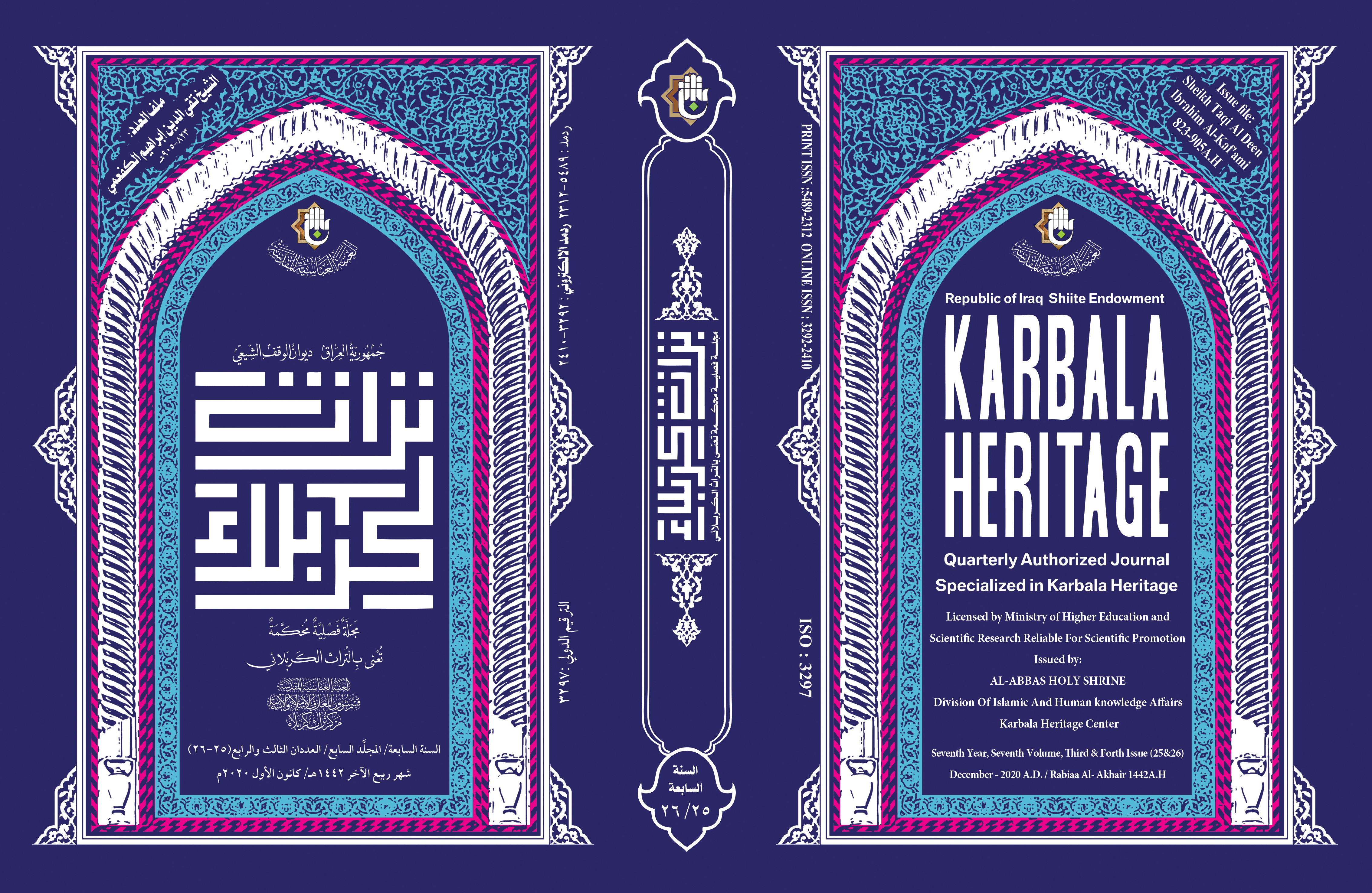Abstract
Searching in heritage is attentively considered by researchers everywhere for the sake of defining it for the coming generations, shaping a distinct identity for the whole society, modelling social frames of knowledge, and enabling its cultural self-paradigm through flexible time constraints. In these terms, it is necessary to look at the heritage of Karbala’i men of letters and scholars to discover their aesthetic, artistic, and ideological values, as represented in Sayyed Murtadha Al-Wahab’s poetry in his divan through ‹religious intertextuality’.
Keywords
Karbala’i Poets.
Key Words: Religious Intertextuality
Murtadha Al-Wahab
Abstract
ما انفك التنقيب عن الموروث موضع عناية الدارسين في كل مكان؛ لتعريف الأجيال اللاحقة بما تركه أسلافهم وعدّ هذه الحركة متكأ حضاريًّا يمنح المجتمع هويَّته المستقلّة، ويتيح له امكانية تحديد أُطره الفكرية بنتاج التطور المعرفي، ومن ثم يعطيه القدرة على تحديد منظومته الثقافية ذاتيًا، والتحرك ضمن عجلة الزمن بسرعة مضاعفة، فكان ضروريًا الوقوف على ما خلّفه رجالات هذه المدينة المقدسة (كربلاء) من مفكرين وأدباء برحلة بحثية تكشف ما ينطوي عليه نتاجهم من قيم فكرية وجمالية، لذا اهتم البحث في رصد ما أثر عن أحد شعراء كربلاء ومتابعته وهو السيد مرتضى الوهاب لتقديمه من خلال دراسة ديوانه على وفق منهج (التناص الدينيّ).
Keywords
.الكلمات المفتاحية: التناص الديني، مرتضى الوهاب، شعراء كربلاء
